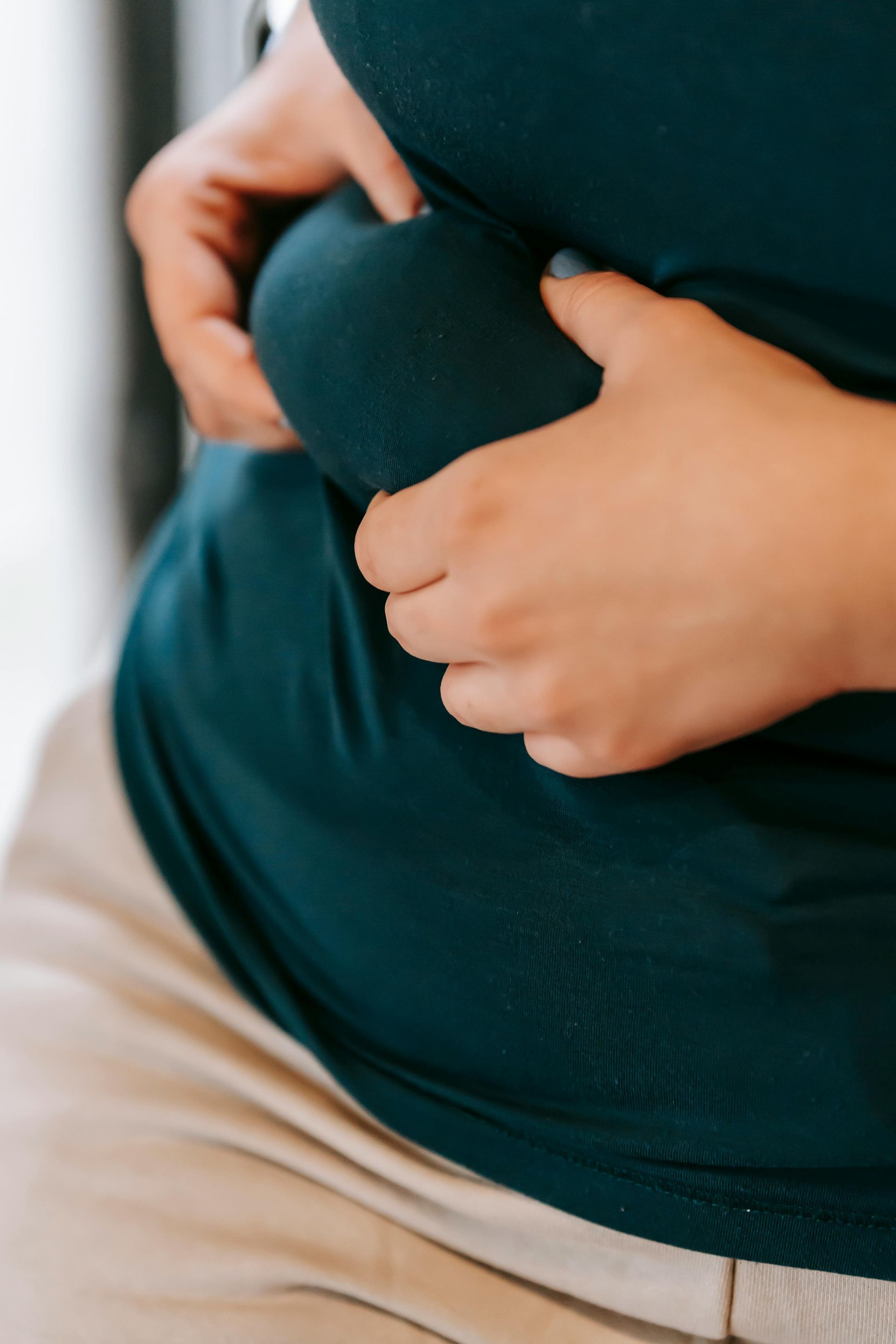September 8, 2020
You can’t change your weight until you change your mind! That is a simple fact of weight loss and wellness life and those of us who work in this field have known this for a very long time. In a nutshell, in order to create real change in your life, you must address more than just your body. You must also address your mind! After all, what you do is a direct result of what you think. There is no great mystery here about which comes first as in that popular philosophical discussion regarding the chicken and the egg. The physical act of eating ALWAYS FOLLOWS the mental decision to eat. It IS a decision. The tricky part about this decision to eat, however, is that it is not always a conscious decision. In my opinion, weight management is primarily a decision-making problem. Change your thinking and your body will follow. It can’t help it! This is also the very foundation of mind/body medicine. The truth is this: There is one incredible moment when the decision to eat is made and, if you can manage that moment, you can solve this problem. With that in mind, I’d like to offer you an idea that can literally change the way you think about eating forever. It’s a cognitive modification strategy that I have developed over the years to provide people with an effective technique for throwing a spotlight on that critical moment when health decisions are about to be made. It’s an awareness technique that will help you to eliminate what I call the MEE Syndrome (Mindless Emotional Eating) and, as a result, will help you choose healthy more often. I cannot underscore enough the value of awareness. To me awareness is like a beam of light in a dark room. It breaks through the darkness, shows the way and allows you to move with confidence. There is no change without awareness as awareness allows you to see other alternatives that are also available to you at those moments of truth. So, if you are interested in a powerful mental strategy that will help change your thinking, I may have just what you’re looking for. It’s a familiar, friendly, universally understood concept that carries with it a real powerful punch. The truth is that you can provide people with all the facts and figures in the world regarding why they need to lose weight but, until that little light goes on inside their head, they will continue to struggle and fail. What I want to offer you today is an interesting new way to help you find that light switch. If you’re like most people, you have already spent more time and money than you care to remember trying to solve this weight control puzzle. I know how difficult and emotional this is for you because I communicate with people engaged in this struggle all the time. Frankly, one of the primary reasons that people fail at weight loss is that they continue to look in the wrong place for the solution. Most people continue to search “outside” for the perfect diet, the best doctor or that fabled magic pill. The truth, however, is that the answer to solving this problem isn’t “outside” at all. It’s “inside”! Now let me begin with a brief explanation of what I believe is at the very heart of this struggle with weight control. You see, all people operate in terms of dichotomies or opposites. As a matter of fact, this is also how the whole world operates. It’s the rhythm of life. There is high/low, happy/sad, awake/asleep, good/evil and the list goes on. Opposing forces balance our existence. Regarding personality, all of the primary schools of psychology agree and incorporate this notion into their respective theories. Depending on which theory you review, each has terms that represent these two opposing parts. For the purpose of our discussion here, however, I want you to think of these two opposing forces in these simple terms. I want you to consider these two opposing parts of you as the ADULT and the CHILD. With that in mind, I want to provide you with some insight regarding what happens, inside your head, every single time you make an eating decision. I call it The Family Feud. Let me explain by reminding you of something I just discussed and something you probably already know from your own personal experience. There are two parts of your personality that are struggling for control of your eating. There is the health conscious and responsible part of you that cares deeply about what you eat, how you look and what you weigh. That’s the part that decided to lose weight and do something about your health. Let’s call this part the ADULT. However, there is also this immature and impulsive part of you that doesn’t care a bit about what you eat, how you look or what you weigh. That’s the part that is perfectly happy with the way things are and has no desire or interest in changing. Let’s call this part the CHILD. You see, the conflict between these two parts of you is at the very heart of your weight control struggle. For example, it’s the responsible adult part of you that decided to read this article in search of some answer or insight. This is the part of you that is tired of being unhealthy and overweight and wants desperately to change. Let me assure you that the child part of you wants nothing to do with dieting, this article or weight loss. I understand this conflict very well. It’s my area of expertise. As a matter of fact, I developed an entire program that specifically addresses the mental part of weight management called The Inner Diet. The conflict between these two parts of you is what I call The Family Feud. I bet that if you close your eyes and listen to your thoughts, you can actually hear these two parts arguing. You know exactly what I’m talking about. It’s almost as if there are two totally different people living inside your head. I can assure you though that this is absolutely normal and exists within all of us. For example, one part of you wants to get healthy and end this pattern of weight gain and unhealthy eating while the other part is trying to convince you that it won’t work, you don’t have the time or it’s too much effort. Living this way is a little like trying to drive forward with one foot on the gas while the other foot is pressed firmly on the brake. The result is that you get nowhere as the child within you will make every excuse under the sun in an attempt to keep you right where you are…lost, overweight and frustrated! As a professional who has worked with countless overweight people, I know that being overweight is costly. It creates unhealthy physical demands on your body and takes an enormous, emotional toll on your spirit. The answer to weight control lies in solving the conflict between the Adult and Child within you. This is where the power is and this is where the solution lies. Just as parents frequently butt heads with their children, so do these two parts of you. You know how it goes when a child wants to do something it shouldn’t and the adult says “No”. The child tries every trick in the book to get what it wants. Children, by nature, are emotional decision-makers. They don’t consider the long-term health effects of their actions. They just want what they want and they want it NOW! They want instant gratification which is why they need a responsible adult to look out for them. This is exactly how this works with your eating decisions. You have been allowing the impulsive and demanding child part of your personality make your eating decisions and your body, your health and your spirit have been paying the price. The key to changing this pattern of poor decision-making and unhealthy eating is for you to learn how to take charge of that child. It’s time for you to become the responsible and health conscious adult. It’s time for you to start winning The Family Feud by taking control of that manipulative part of you that has sabotaged every attempt you have ever made at weight control. I have been using this concept for a very long time and am very pleased to see the impact that The Family Feud has had on so many people. It is such a universally understandable and identifiable concept that it seems to immediately click with people. The comments and emails that I have received over the years confirms how helpful, enlightening and empowering this concept can be. Putting theory into practice, however, is what creates real change in your everyday life. In learning theory, this is called transfer. This is where you take some intellectual understanding and put it into practice in the real world. In an attempt to facilitate that transfer and help you learn how to incorporate The Family Feud concept into your daily life, I offer you the following suggestion. This is perfect for those of you who keep a journal. I might add, if you are not presently doing so, please consider beginning. Research shows that it’s an integral part of the success formula and it is also a great way to release feelings and emotions while helping you to become more mindful about what, when and why you eat. Journaling provides yet another way for you to get more personally and actively involved in the solution. My experience is that patients do better when they are active participants as opposed to simply passive recipients of information. So, for those of you who journal, I suggest you create another column in your journal. Every time you put food into your mouth, and I do mean every time, I want you to record either an “A” or a “C” in that new column. You need to decide, prior to putting anything into your mouth, who is making this eating decision. Is it the responsible Adult making this eating decision or is it the impulsive Child? Then, put an "A" for adult or a "C" for child next to that entry. If you choose not to keep a journal, you can just use a piece of paper or you can simply ask yourself this question prior to eating. You can then tally the A’s and C’s at the end of each day or week and get a very good idea about where your eating decisions are coming from. The goal is to maximize the A decisions and minimize the C decisions. This gives you an objective way to simply and quickly measure your progress from week to week. You might even want to track this on a chart on your fridge, for example. This will greatly increase your awareness of the choices that you make while, at the same time, put a spotlight on that "moment" when the decision to eat is made because, as I mentioned earlier, if you can manage that moment, you can solve this problem. The purpose of this activity is to eliminate the MEE Syndrome by creating more "mindful" eating and less "mindless" eating. Awareness is the key to change. By contemplating A or C before every eating decision, you will put yourself in the perfect position to choose wisely, promote healthy change and begin winning The Family Feud! Wishing You Great Health! Dr. John H. Sklare













